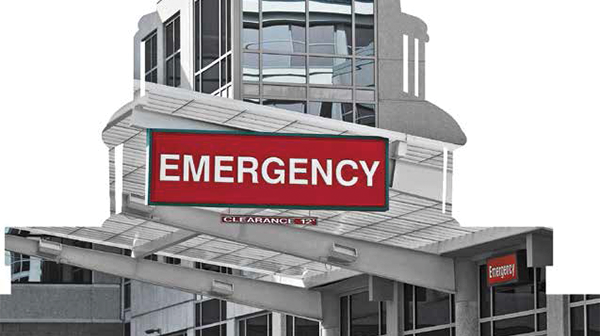
RM: How does emergency medicine, both training and experience, help prepare you for this role? Being in emergency medicine residency training is different than some of the past experiences you’ve had, so how does that come to bear for you?
Explore This Issue
ACEP Now: Vol 33 – No 03 – March 2014RH: The irony is that it’s some of the stuff you actually taught me, like the ability to triage, that is really important. Figuring out what’s important and what’s not important—we do that really well. Our interface with multiple disciplines is a huge training ground for people who want to expand their horizons beyond emergency medicine. Trying to bring three different specialties together at the bedside and being able to come up with a solution to a difficult patient problem is a very useful skill set. Those skills have served anyone in our discipline well when they’ve gone outside the walls of a hospital. The other one is multitasking. It feels like we’re the founding fathers of multitasking, in some respects. We were doing it a long time before people were talking about it in the news every day. If you don’t gain it quickly, you’re not going to make it taking care of people in emergency departments. There’s also the ability to know when to act. It’s not something you learn in medical school; it’s a skill gained over time. My emergency medicine experience has also taught me a foundational principle that I bring to this job: our emergency care system has to work well every day to be able to respond well when disaster strikes.
RM: You make great points because that is one of the outcomes of experience in high-stress and critical settings. You learn how to prioritize, you learn how to look at the system, and you know how to tell sick from not sick without having to order a bunch of tests because something’s “gotta be done.”
RH: Absolutely. It’s as if it’s a constant iterative process when you’re practicing emergency medicine. Outside the discipline, that skill set is a pretty rare thing to find. Another thing that I bring to this job is that we have, in emergency medicine, an amazing snapshot of society. In bed eight, there might be the mayor of the city, and in bed 12, there might be somebody who’s been out of work for 20 months, and everything in between. That really helps us have a snapshot of the world in profound ways. The skill that is probably the most paramount is the commitment to a singular mission: to save lives and decrease suffering. Almost anybody in our career has said, on multiple occasions, “Well, let’s do what’s in the best interest of the patient here.” That has carried me personally and professionally.
Pages: 1 2 3 4 | Single Page




No Responses to “Emergency Medicine in the White House”